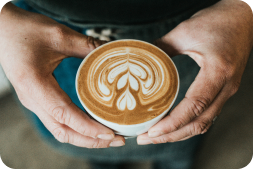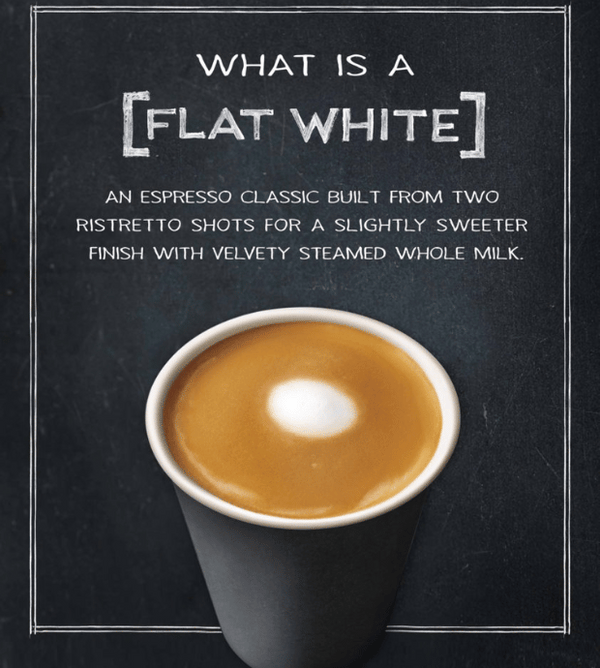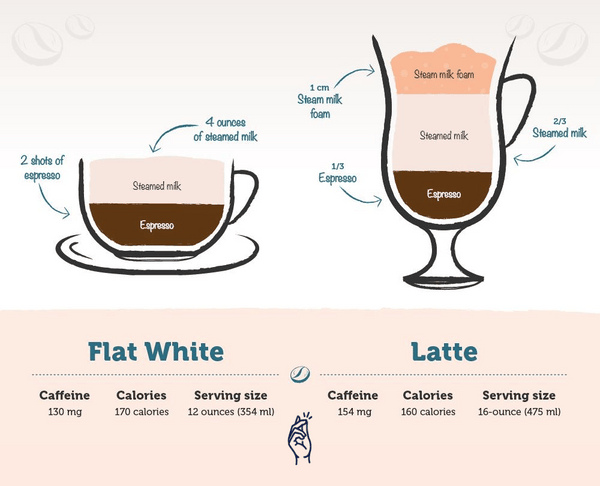We all attribute that wonderful morning pick-me-up from our coffee to the magical chemical caffeine. That controversial substance that is on the one hand hailed as the natural charge to the brain and on the other an addictive habit-forming villain to be avoided.
The constant debate has us often paying attention to our caffeine intake (which is no bad thing!), and one conversation that seems to be taking hold recently is whether cold brew coffee has more caffeine than hot coffee?
An interesting question, and one we are going to get to the bottom of in this article.
So let’s dive in…
Cold Brew Coffee vs Hot Coffee
Coffee has a long history, and the coffee plant was originally discovered in Ethiopia in the 11th Century. Its earliest uses were actually for medicine, although they were still boiled and turned into a brew!
It wasn’t until the 14th Century in Turkey that the modern method of roasting the beans and then grinding them to brew a coffee started spreading around the world.
Cold brew coffee specifically dates back to Japan in the 1600s and spread through Europe with Dutch traders.
The process of making coffee has a big impact on the amount of caffeine in your drink.
We all know what hot coffee is and how it’s made – you get your ground coffee bean, add hot water, strain, and drink.
Cold brew on the other hand is a much slower process – you soak your coarse ground coffee in cold or room temperature water for around 8 to 24 hours.
This process generates a very different taste from your standard brewing process, and cold brew coffee has been growing massively in popularity in recent years because of its smooth rich flavours.
So, which has more caffeine? Let’s find out…
How much caffeine is in Cold Brew?
There’s no one answer to this question as the reality is every cold brew has a different amount.
For example, Stok Cold Brew has 145 mg of caffeine per bottle, Starbucks cold brew has 205 mg per cup, and Costa has even more caffeine per cup.
Home-made cold brews caffeine content can be higher still depending on the coffee to water ratio that is used.
How much caffeine is in hot coffee?
Your regular cup of coffee on the other hand tends to have around 95mg of caffeine in it per cup.
This again varies dramatically depending on where you get it or how you make your coffee. Starbuck cup of coffee, for example, has 180mg of caffeine. A cup of coffee from Costa on the other hand has around 277mg of caffeine per cup
Why is there a difference?
Ultimately it comes down to the amount of ground coffee you need to make your morning cup – the coffee to water ratio.
Cold brew uses more ground coffee to make the same amount of liquid as a hot brew does. This means that more caffeine will be extracted.
If you were to use the same amount of ground coffee for both a cold and hot brew then you would in fact get more caffeine in the hot cup of coffee. This is because the heat has a big impact on the amount of caffeine that is extracted.
This, however, is not usually the case, and to make a cold brew coffee producer will generally is up to three times the amount of ground coffee.
So cold brew has more caffeine than hot coffee?
If you were to purely consider store-bought cold brew coffee vs store-bought hot coffee then yes, cold brew has more caffeine than a cold brew.
If you like to make a cold brew at home, however, and we recommend you do, then you can have a bit more control over the amount of coffee you use and reduce the amount of caffeine if you want.
Does this make cold brew coffee worse for you?
If you keep in mind your daily caffeine limit and don’t drink four or five cold brews a day then there are actually some added benefits to drinking cold brew over a hot coffee.
Because you aren’t using hot water to brew the coffee the coffee grounds don’t release the same oils or acid into the drink.
This makes cold brew far easier on your stomach and far better for your gut microbiome (which affects everything in your body including your immune system). You also get all the benefits of the B vitamins, potassium, and magnesium from coffee beans, which help with cognitive function, control diabetes, and help weight loss, to name a few.
So, there you have it, cold brew coffee does generally have more caffeine than your regular hot coffee, though, as with all things, the amount of caffeine varies wildly depending on where you get it from.
Frequently Asked Questions
Does Cold Brew Have More Caffeine?
Yes, cold brew coffee typically contains more caffeine compared to regular brewed coffee. This difference is mainly due to the brewing process and coffee-to-water ratio.
What is the caffeine content in cold brew coffee?
Cold brew coffee typically has a higher caffeine content than regular coffee due to its unique brewing process, offering a robust and energetic kick.
Typically, a 16-ounce (473 ml) serving of cold brew coffee contains about 200 milligrams of caffeine. This amount, however, is not fixed and can change. For instance, a stronger coffee-to-water ratio or longer brewing time can increase the caffeine content. Conversely, a weaker ratio or shorter brewing time can reduce the caffeine levels.
Does cold brew have more caffeine than regular coffee?
Yes, cold brew often boasts a higher caffeine concentration compared to regular coffee. The cold brewing method extracts more caffeine, resulting in a potent and satisfying brew.
Is cold brew more caffeinated than traditional coffee?
Yes, cold brew is generally more caffeinated than traditional coffee. Its extended brewing process extracts a higher concentration of caffeine, providing a flavorful and stimulating experience.
Why does cold brew have more caffeine?
Cold brew's extended steeping time allows for a more thorough extraction of caffeine from the Whole Bean Coffee, resulting in a brew that's rich in flavor and higher in caffeine content.




